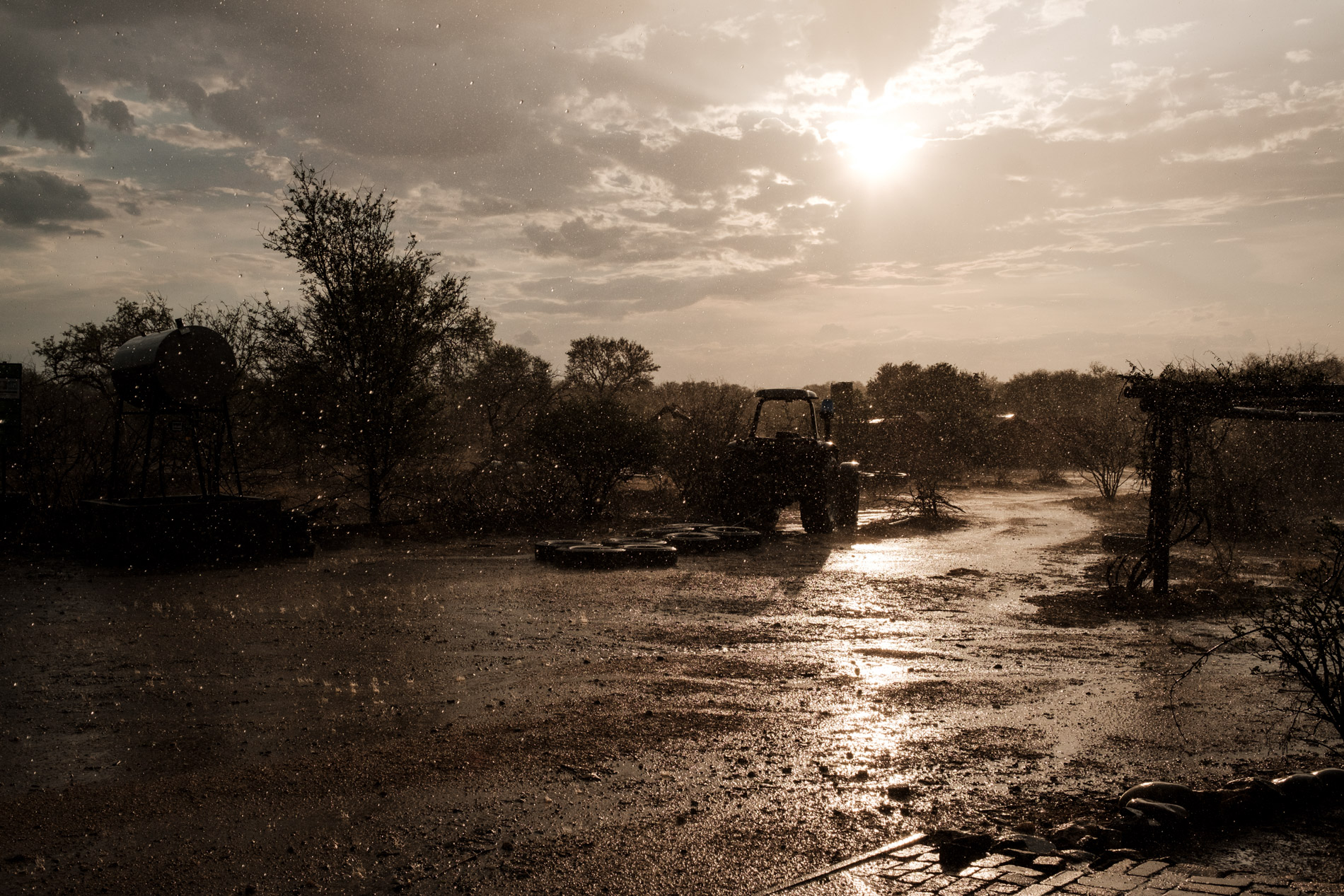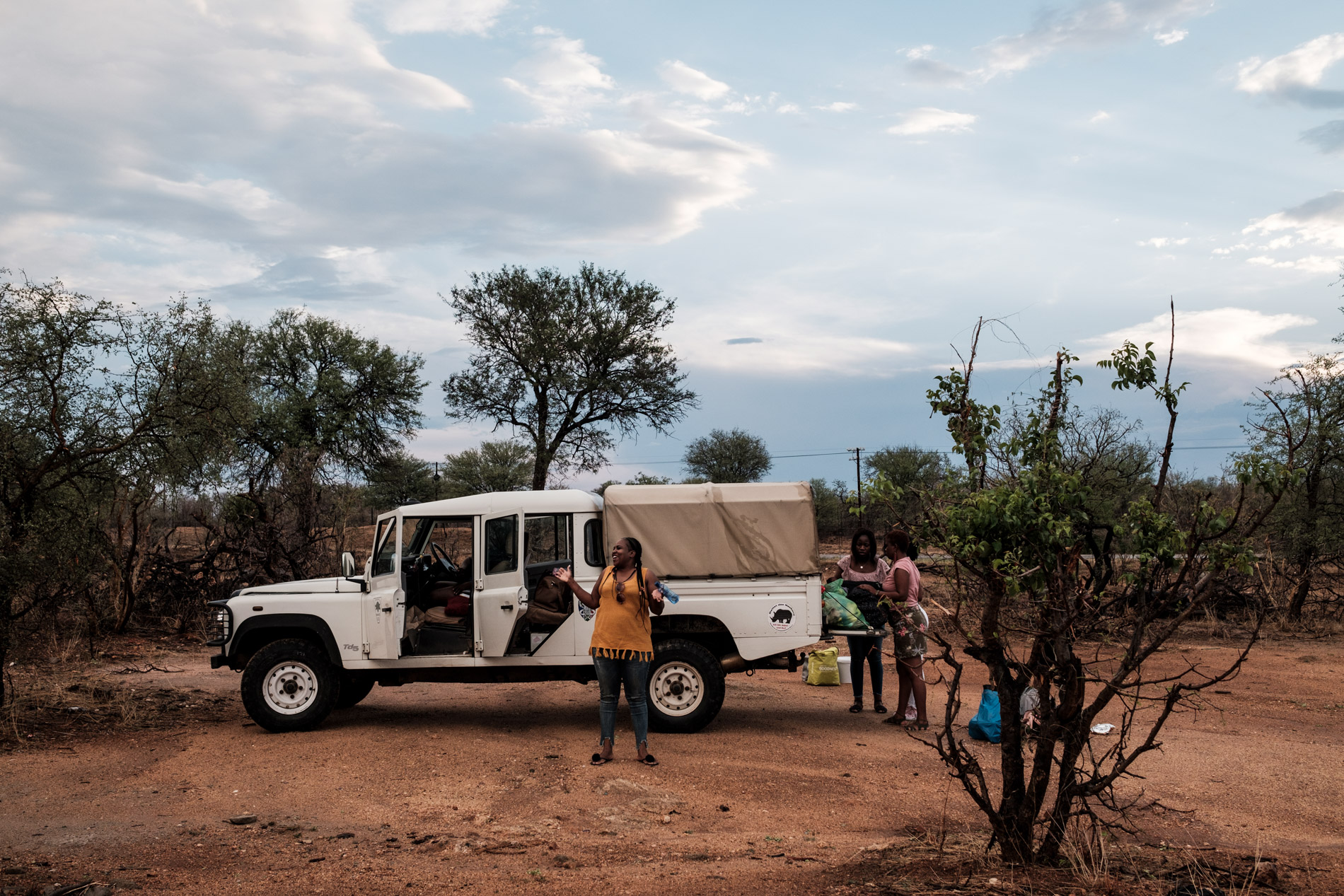In the footsteps of the “Black Mambas”
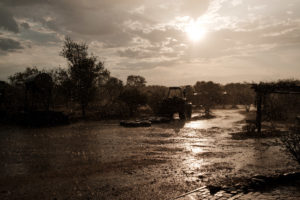
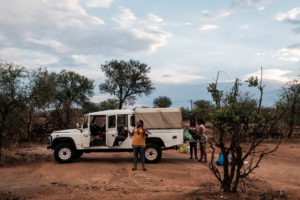
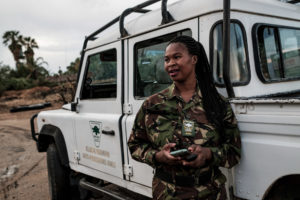
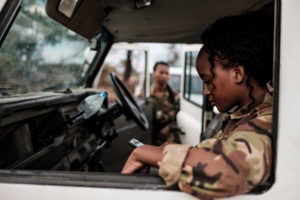
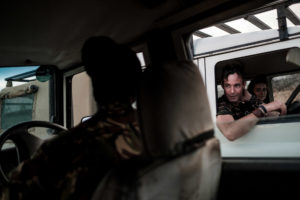
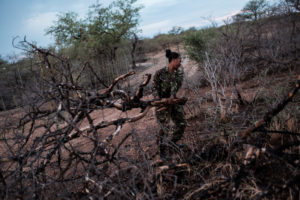
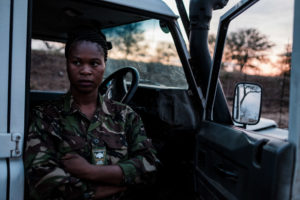
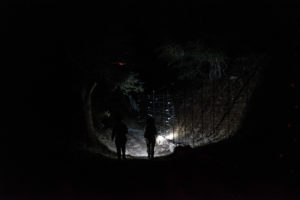
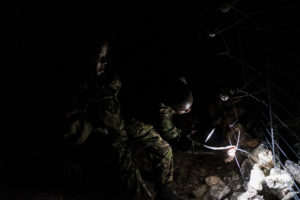
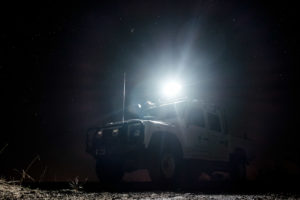
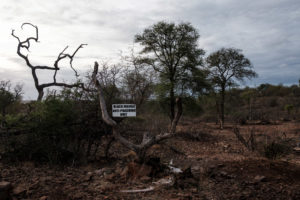
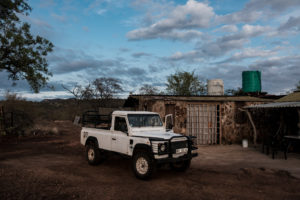
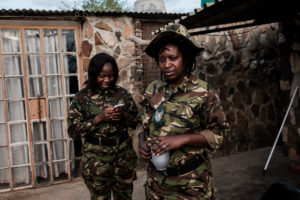
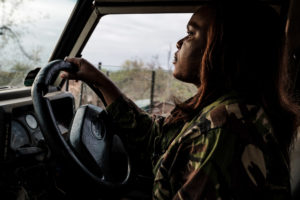
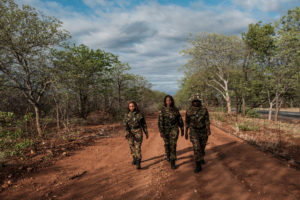
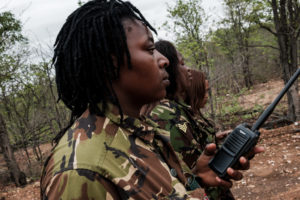
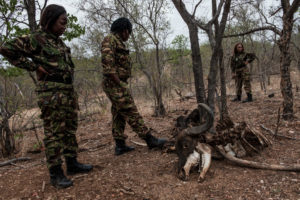
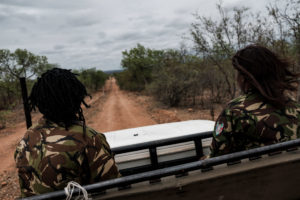

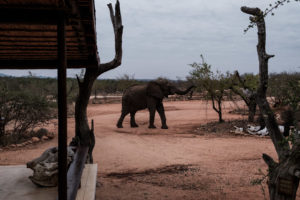

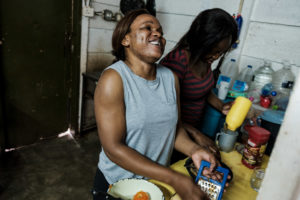
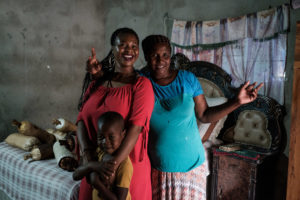
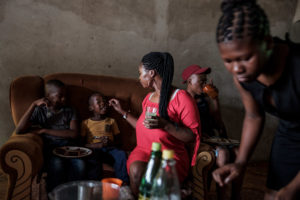
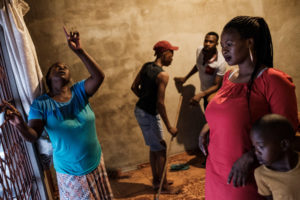
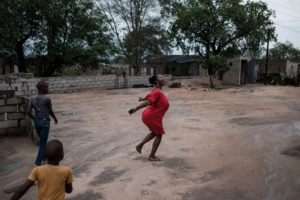
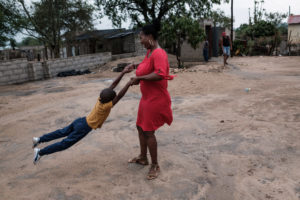
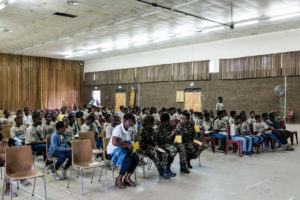
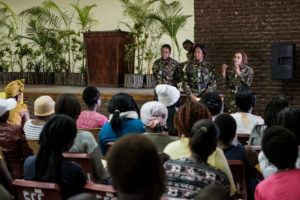
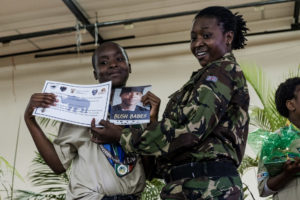
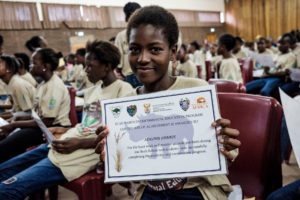
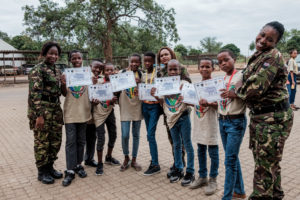
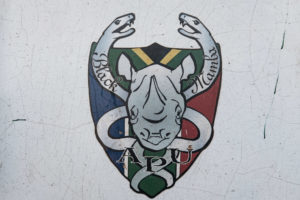
A storm over the Balule reserve, near the Kruger Park in South Africa
Some Black Mambas are back from a training in Johannesburg.
Leitah Mkhabela, 28 years old, one of Black Mambas supervisors, goes on night patrol Balule Reserve in the greater Kruger Park.
Felicia, at the beginning of the night patrol in Balule Reserve.
Craig Spencer, director of the NGO Transfrontier Africa and creator of the Black Mambas unit.
Leitah Mkhabela must remove trees and debris from the trail in the Balule Reserve.
Leitah Mkhabela observes the surroundings from an OP "Observation Post", useful to see and be seen.
Two Black Mambas, Leitah and Felicia, check the Reserve fence on foot.
Two Black Mambas, Leitah and Felicia, check the Reserve fence on foot.
Leitah Mkhabela is securely sitting on the roof of the 4x4, where she lights the bush with a torch: these OP (Observation Posts) are useful to see and be seen to dissuade poachers.
Grietje camp awakens : the patrol starts at 6 every morning.
Grietje camp awakens : the patrol starts at 6 every morning.
Belinda, a 30 years old sergeant and Loveness, 27 years old, are ready to go on morning patrol in Grietje Reserve.
Lukie Mahlake, 31 years old, drives in Grietje Reserve at dawn.
Lukie, Belinda, and Loveness, during a morning patrol to check the fences in Grietje Reserve. They tell stories about poachers, and life in Grietje.
Loveness gives their position and a short report to the Black Mambas HQ every hour.
The Black Mambas find a buffalo carcass, which was killed and devoured by lions a few weeks earlier.
From their car, they quickly witnessed the feast: danger comes from inside and outside the Reserve.
Driving back to Grietje camp to have breakfast, wash and rest before the night patrol at 6 pm.
Everjoy, 27 years old, is taking care of checking on the four teams on patrol that night. Only her knows their itinerary and exact position. Every hour, she contacts them to get a report.
An elephant walks in front of the window of the Black Mambas HQ where Everjoy works that night.
Lukie cooks in the small kitchen of their camp.
Lukie cooks in the small kitchen of their camp.
Leitah, her mother and her son, at her family's home.
Leitah Mkhabela’s family share a cake and the sodas she brought back home.
A massive hail storm falls on Hluvukani and Leitah's family house, her brothers help and the whole family checks the roof.
The hail storm has passed, Leitah goes outside to play with her son and her brothers: the air is fresh and bearable, a bit of wind is blowing.
The hail storm has passed, Leitah goes outside to play with her son and her brothers: the air is fresh and bearable, a bit of wind is blowing.
Phalaborwa, Foskor Community Center: three Black Mambas during the diploma ceremony with the schoolkids who participated in the "Bush Babies" program: an educating initiative for the kids who live in villages around the Reserves.
A speech given by three Black Mambas during the diploma ceremony with the schoolkids who participated in the "Bush Babies" program: an educating initiative for the kids who live in villages around the Reserves.
Phalaborwa, Foskor Community Center: the kids who participated in the Bush Babis program receive their diploma.
Phalaborwa, Foskor Community Center: the kids who participated in the Bush Babis program receive their diploma.
Three Black Mambas pose with the schoolkids who participated in the "Bush Babies" program.
The Black Mambas unit logo, on a 4x4.
Night is falling over the Balule reserve, in the Kruger Park. For its wild occupants, this is not good news: in the bush, with darkness comes danger. Especially when you are a rhino. There, indeed, for more than 15 years now, the last rhinos of Africa struggle to survive, trying to escape from poachers. The fight is cruel and intense: in 2010, 333 rhinos were killed for their horn in the Kruger; in 2012, 668; in 2016, more than 1,000. Since 2013, however, the animals are not alone anymore. Their guardian angels watch. Thirty-two young women live there, among them in the bush, to protect their lives. Far away from their families, patrolling nights and days and sleeping in camps with basic comfort, these women fight to preserve this invaluable natural heritage, and to encourage the next generations to take care of it.
They are the “Black Mambas”: the first all-female anti-poaching unit in South Africa.
Text and synopsis: Benjamin Leclercq
[Published in Paris Match, may 2019]
Stories | Tags: Black Mambas, environment, poaching, protection, South Africa.
Propulsé par WordPress et bidouillé à partir de F8
Contenu protégé, merci de me contacter pour toute utilisation
© 2026 Juliette Robert – Photographer
CGV // Terms & conditions
